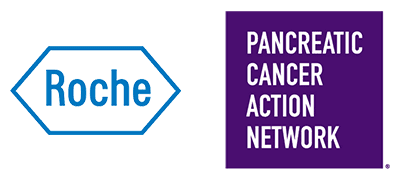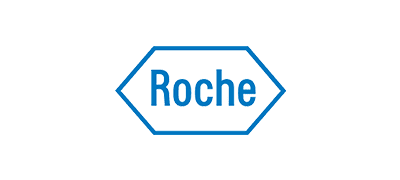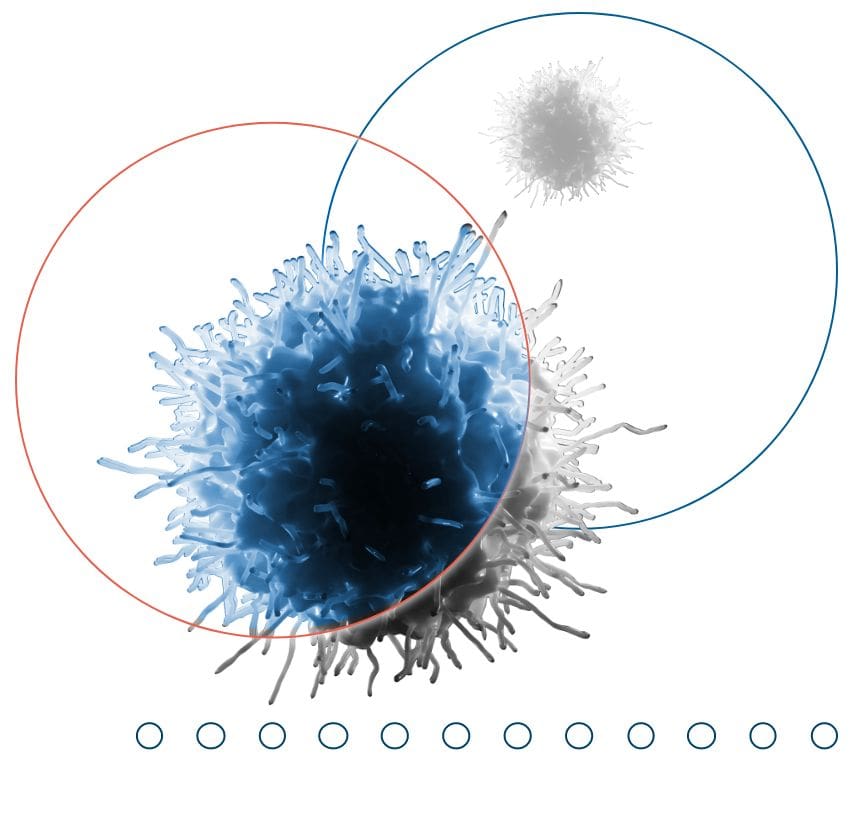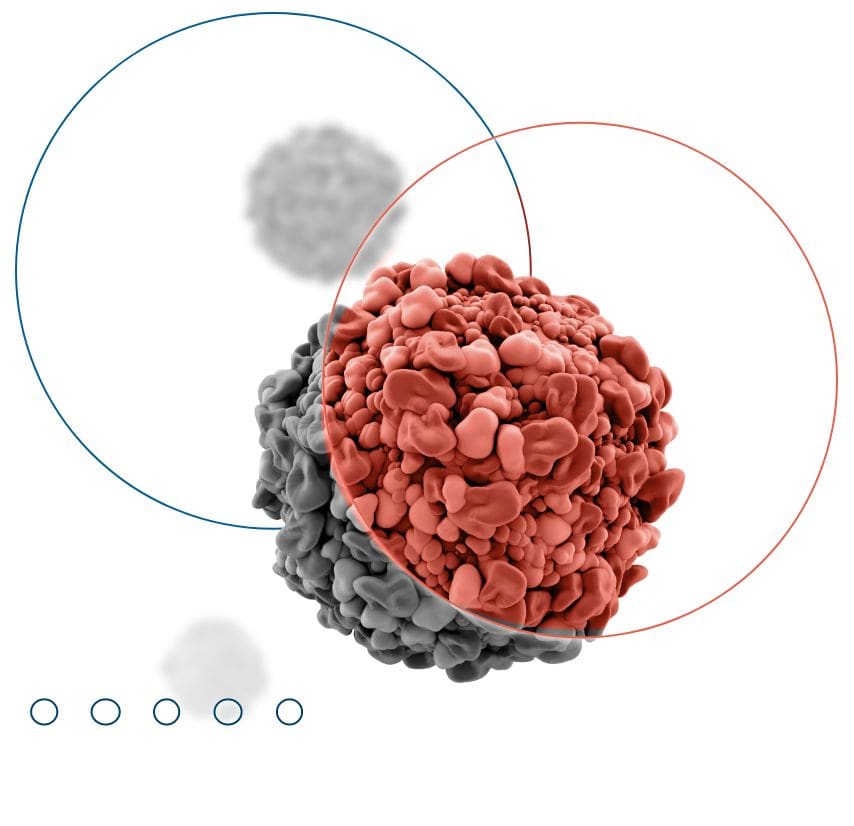Pipeline
The cancer-fighting potential of pelareorep has generated partnerships with leading academic institutions and pharmaceutical industry collaborators. Given the validity of the mechanism of action and the efficacy observed thus far, we anticipate that its benefits will extend across multiple indications, including breast, gastrointestinal (GI), and hematologic malignancies.
PDAC


PDAC: pancreatic ductal adenocarcinoma; CRC: colorectal cancer; SCAC: squamous cell carcinoma of the anal canal; pela: pelareorep; GnP: gemcitabine + nab-paclitaxel; CPI: checkpoint inhibitor; mFOL: modified FOLFIRINOX; atezo: atezolizumab; IST: investigator-sponsored trial; bev: bevacizumab; 1L: First-Line; 2L: Second-Line
Breast Cancer
As rates of HR+/HER2- breast cancer rise, the need for more effective therapies grows1. Learn more about Oncolytics’ BRACELET-1 clinical trial for patients with HR+/HER2- metastatic breast cancer.
In early-stage breast cancer, Oncolytics investigated how pelareorep remodels the tumor microenvironment and the potential to improve treatment response. Learn more about our AWARE-1 clinical trial.


GI Cancer
GI cancers include cancers of the esophagus, stomach, colon, rectum, pancreas, liver, and anus. As of 2018, GI cancers account for 26% of global cancer incidence and 35% of global cancer deaths.3 Each year, approximately 250,000 cases of GI cancer are diagnosed in the United States.2 Five-year survival rates vary according to the specific type, ranging from 33.5% for stomach cancer to 11.5% for pancreatic cancer.4 With tumors that are localized and easy to remove, surgery may be the only treatment needed. For other types of GI cancer, radiation, chemotherapy, or targeted therapies may be necessary.
Given the need for more effective treatments for patients with GI cancers, Oncolytics is investigating pelareorep in combination with the checkpoint inhibitor atezolizumab, plus standard-of-care treatments where appropriate, to improve outcomes in patients with GI cancers, including metastatic/advanced pancreatic cancer. Learn more about Oncolytics’ GOBLET clinical trial.
Collaborations
Oncolytics is dedicated to advancing the development of pelareorep through partnerships with both industry and academic leaders. In the pharmaceutical world, we have teamed up with Roche Holding AG, Pfizer Inc., Merck Serono, Incyte Corporation, and Adlai Nortye to evaluate pelareorep in combination with therapeutic agents. We have also partnered with researchers from several institutions, including the Mayo Clinic, Duke University, the Rutgers Cancer Institute of New Jersey, the Ohio State University Comprehensive Cancer Center, the Keck School of Medicine of the University of Southern California, PrECOG, SOLTI, and AIO-Studien-gGmbH, to evaluate additional pelareorep-based combinations.

- Siegel RL, Miller KD, Fuchs HE, Jemal A. Cancer statistics, 2022. CA Cancer J Clin. 2022;72:7-33. https://doi.org/10.3322/caac.21708
- SEER*Explorer: An interactive website for SEER cancer statistics [Internet]. Surveillance Research Program, National Cancer Institute. Accessed September 27, 2022. https://seer.cancer.gov/explorer/
- Arnold M, Abnet CC, Neale RE, et al. Global burden of 5 major types of gastrointestinal cancer. Gastroenterology. 2020;159(1):335-349.e15. doi:10.1053/j.gastro.2020.02.068
- National Cancer Institute. (2021). Cancer Stat Facts: Stomach Cancer. SEER Program, Surveillance, Epidemiology, and End Results. Retrieved April 5, 2023, from https://seer.cancer.gov/statfacts/html/stomach.html
Expanded Access
Oncolytics believes that participating in clinical trials is the best way for patients to access pelareorep. We are not currently able to fulfill expanded access requests at this time.
Information on many of Oncolytics clinical trials can be found at Home – ClinicalTrials.gov. If a treating doctor would like additional information, the doctor should formally contact Oncolytics at info@oncolytics.ca.
Contact Us
For questions regarding our science, partnership opportunities, or other inquiries, we encourage you to reach out.